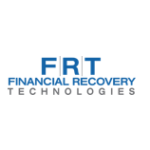History of the Australian Class Action
By Andrew Lasky, Legal Product Specialist
2017 marks the 25th anniversary of the introduction of the class action regime into the Australian Federal Court System. Since the inclusion of Part IVA of the Federal Court of Australia Act 1976 in 1992, the concept of representative proceedings has gone through several evolutionary processes and procedures for class action lawsuits look much different today than they did in its original iteration.
When originally presented to the Australian Federal Courts, representative proceedings were introduced as open-class, or opt-out, cases. All potential claimants were included and bound by the Court’s decision unless they formally opted out or excluded themselves from the class and introduced their own, private litigation. However, along with the introduction of representative proceedings in the AU Federal Courts came the increased need for litigation funders to help mitigate the expensive costs and high risks of initiating a class-action lawsuit. Because litigation funders were compensated based only upon class members who had formally registered with them by signing a funding agreement, funders were faced with the issue of “free-riding” class members. As a result, funders were under-compensated for the weight of financing these cases. Litigation funders pushed back and cases began to be filed as opt-in or closed classes to protect funders’ rights to recoup their costs.
In a closed-class case, prospective claimants are required to affirmatively sign up (or register) with the organizing law firms and litigation funders. The funder’s compensation is established in registration agreements that are signed by the class members before the case is filed.
Initially, litigation funding was concentrated among a limited number of groups, but recently an increased number of organizers (law firms and funders) have competed for leadership in cases. Competition between claims has once again begun to change the landscape of Australian class actions. Defendants are hesitant to settle claims with one funder while they are still at risk from simultaneous suits by other funders and additional class members whose claims are not represented by a funder.
To balance the interests of the defendants and the funders, and to promote settlements, a compromise has been struck. In order to prevent class members who have not registered with an organizer from “free-riding” on the case, in the fall of 2016 the Federal Court of Australia approved the use of a common fund order. Common fund orders dictate that all class members, whether registered or not, who receive any recovery from the case must pay the funder a court-approved contingency fee and proportionate share of litigation costs based on the settlement of their claims. Ideally, without the fear of free-riding class members, the common fund order will encourage funders to fund and file more inclusive, open class cases.
As common fund orders become more of standard practice, the Australia class action landscape will likely continue to evolve. At present multiple representative proceedings are common for most matters and there are still instances where some organizers file closed classes while others file on an open basis. Over time we expect that more and more actions will be filed on an open basis and proceed in a manner similar to those in the US.
About FRT
U.S. CLAIMS I GLOBAL I ANTITRUST I LITIGATION MONITORING I BUYOUTS
Founded in 2008, Financial Recovery Technologies (FRT) is a leading technology-based services firm that helps the investment community identify eligibility, file claims and collect funds made available in securities and other class action settlements. Offering the most comprehensive range of claim filing and monitoring services available, we provide best-in-class eligibility analysis, disbursement auditing and client reporting, and deliver the highest level of accuracy, accountability, and transparency available. For more information, go to www.frtservices.com.
FRT GLOBAL
FRT Global is designed to meet the growing demand for research and analysis on non-US settlement and recovery opportunities. FRT’s team of professionals possesses the necessary insight, relationships, and expertise to assist you in successful international claims recovery. The company’s FRT Global suite of services include analyzing trading history for relevant transactions, coordinating with litigation organizers in different countries, supporting the processing and submitting of transactions, and researching the specific case and jurisdiction requirements.
Follow us on Twitter: @FRTServices
Follow us on LinkedIn: Financial Recovery Technologies
Email us: learnmore@frtservices.com
This communication and the content found by following any link herein are being provided to you by Financial Recovery Technologies (FRT) for informational purposes only and does not constitute advice. All material presented herein is believed to be reliable but FRT makes no representation or warranty with respect to this communication or such content and expressly disclaims any implied warranty under law. Opinions expressed in this communication may change without prior notice. Firms should always seek legal and financial advice specific to their unique situation and objectives.





